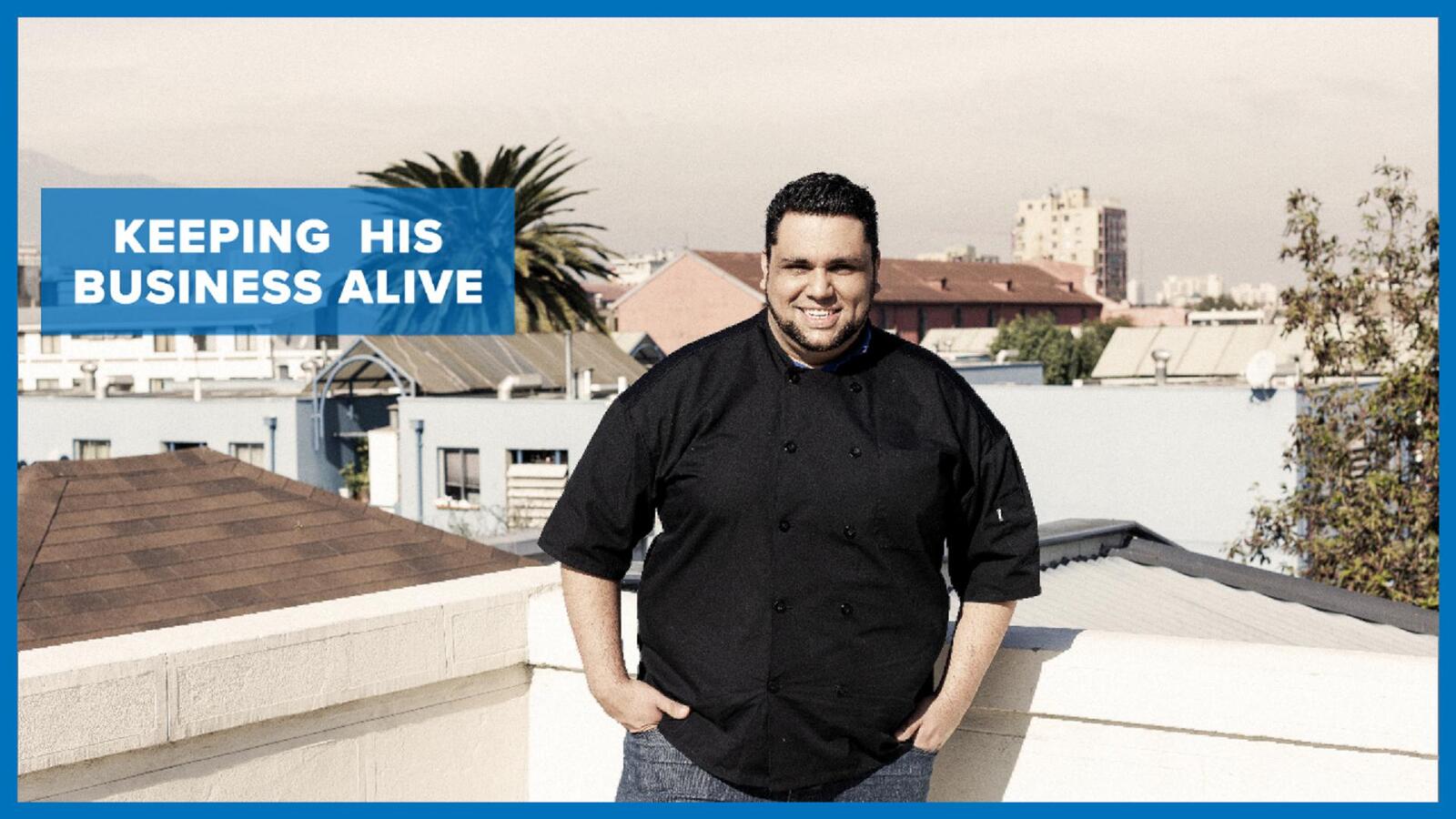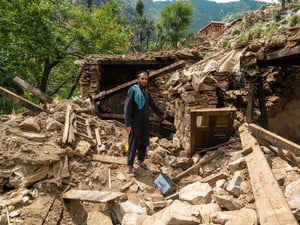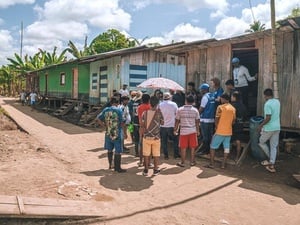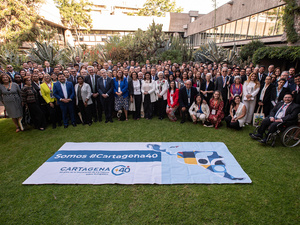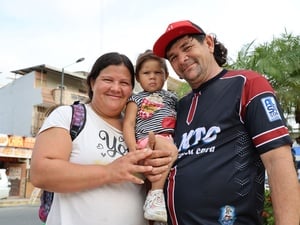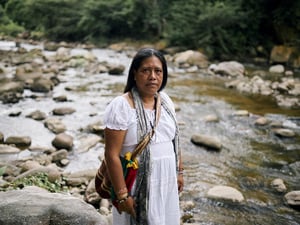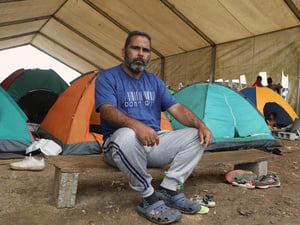Entrepreneurship training helps Venezuelan refugees find stability
Entrepreneurship training helps Venezuelan refugees find stability

María is a 33-year-old Venezuelan entrepreneur who runs a successful business making ready-to-use pastry dough for empanadas in the southern Peruvian city of Arequipa.
Although María had a university degree in special education and years-worth of experience working in business administration back in her native Venezuela, when she first arrived in Peru, she found herself with no choice but to accept an off-the-books position, helping out at a dentist’s office.
The pay was so low, she and her infant son had to live in the office. When the situation became untenable, María gave her employer one month’s notice.
“He said, ‘no, if you’re leaving, leave now,’” recalled María, 33, who moved to the southern Peruvian city of Arequipa around five years ago. “He gave me two hours to get out and … I found myself on the street with 250 Peruvian soles (US$65), my son, and a suitcase.”
"Having your own business ... gives you a much firmer foundation."
Once she got back on her feet, María was determined to never go through a similar situation again. The key, she decided, was to become her own boss.
“A job doesn’t necessarily give you stability because anything can happen and you can lose that position and then not be able pay the rent and have to move,” reflected María, who left Venezuela after her baby developed a serious kidney infection due to a widespread shortage of disposable diapers. “Having your own business, on the other hand, gives you a much firmer foundation.”
Like many of the Venezuelan refugees and migrants who have left their country in recent years, María set her sights on the food industry, deciding to start a small business selling ready-to-use pastry dough for empanadas.
But even her previous experience in business administration failed to prepare her for the overwhelming challenge of starting a new business in a new country. Dipping deep into her savings, she managed to buy the basic equipment – an electric mixer and dough sheeter – to be able to start selling premade sheets of empanada dough to a handful of clients. Despite putting in seemingly endless long hours, she was just scraping by.

María produces pre-made sheets of empanada dough. Her business was struggling until she participated in an entrepreneurship mentorship course run by the Kaman business incubator in partnership with UNHCR.
It was not until she was accepted into an entrepreneurship mentorship course that María realized she could take her small business to the next level.
“I had been working for a year…without any sort of organization or order,” she recalled, speaking in the small kitchen she now rents for the business. “I didn’t realize how small my profit margins were. I was earning enough to get by…. But the mentorship opened my eyes and made me see that I could do more and grow more.”
Run, with support from UNHCR, the UN Refugee Agency, by the Kaman business incubator, at Arequipa’s University of San Pablo, the mentorship provides basic training on such crucial business skills as finance and marketing. Since the programme started in April 2021, it has helped give around 140 fledgling refugee and migrant entrepreneurs the skills they need not only to survive, but to thrive.
“Most [of the mentees] have problems with the finance part because they are either afraid to charge too much or because they fail to take into account such expenses as the raw material, the labour, or the electricity it takes to make their product,” said María del Rosario Ojeda, one of the programme’s mentors. That changes, she said, when they see the numbers in front of them, in stark black and white. They are then pushed to make the sometimes-difficult changes necessary to allow their businesses to flourish.
Much of UNHCR’s work with Venezuelan refugees and migrants across South America is focused on integration – giving people the tools they need to be self-sufficient and contribute to their host countries. Because regular income is the foundation upon which stability is built, programmes like the business incubation mentorship in Arequipa are a key part of those efforts.
In Chile, a programme gives would-be entrepreneurs in the food sector the knowledge they need to safely and legally sell their wares, and a shared professional kitchen in which to work.
For Yahveh Herrera, 33, the programme, Santiago Cocina, proved invaluable in helping him adapt his successful Caracas chocolate business to the very different realities of the Chilean market. While Yahveh had the basics of running his business down pat, he was unprepared for how many fundamental changes he would have to make to replicate that success in Chile.
“It’s a constant process of adaptation,” he said, explaining that he has had to tailor his offerings to Chilean tastes, which tend to be more conservative than those of Venezuelan consumers. Yahveh credited the Santiago Cocina programme, as well as use of the professional kitchen it provides, with giving him the guidance and facilities he needed to make the necessary changes.

Some of Yahvé's chocolate truffles made in Santiago Cocina's communal kitchen in the Chilean capital.
Yahveh, who left Venezuela on account of worries about his personal safety, compared the process of getting a business off the ground in a new country to the travails of forced displacement itself. In a host country “you’re no longer living like you did in your country, so you have to adapt, try to embrace [this change] as something positive and take full advantage of opportunities.”
María, the entrepreneur behind the dough company, De Masa, said the training programme had helped her double her turnover, which in turn allowed her to hire a full-time employee – a fellow Venezuelan woman.
“It [the training] has really been fundamental, just fundamental for the business,” said María.

